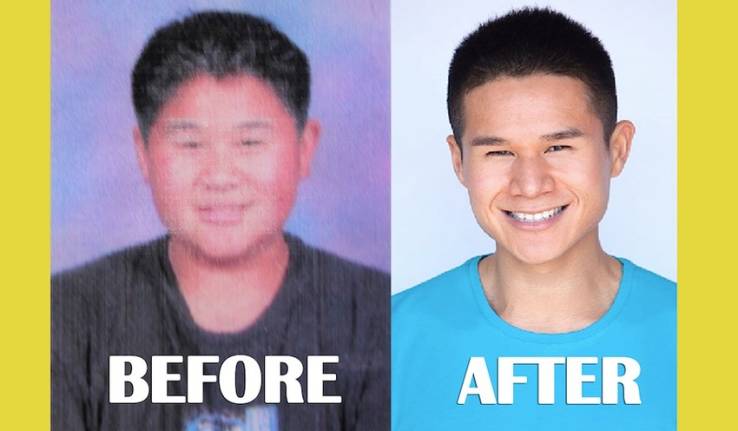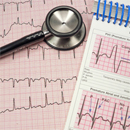8 Ways to Beat the Freshman 15
Students often worry about the typical college stressors — getting along with roommates, finding classes, making friends and avoiding the dreaded "freshman 15" weight gain. While you can't handpick your roommate, you can take steps to eat healthy and keep your weight in check. College is an adjustment, but it doesn't have to mean an adjustment in your pant size.
Weight Gain Is Not a Prerequisite
Good news! The freshman 15 is a myth. There is conflicting research with the exact amount of weight gained during the first year of college, but students seem to gain a moderate amount of weight during and after college. Although there are many compelling reasons to be vigilant about diet and physical activity in college, you aren't destined to gain weight — you're in the driver's seat.
Be Prepared
Many freshmen are living away from home for the first time, and this can stir up unpredictable emotions. "Emotions play a huge role in weight gain," says Academy of Nutrition and Dietetics Spokesperson Kristi King, MPH, RDN, CNSC, LD. "Stress, anxiety and homesickness can all lead to overeating."
Before you snack, ask yourself if you're eating out of boredom or soothing yourself with food. If you're stressed, anxious or feeling blue, take a study break to chat with a friend, or go on a brisk walk. If stress and anxiety feel unmanageable, look into on-campus student counseling services for assistance.
Stock Smart Snacks
If you have a weakness for chips, don't keep a giant bag in your room. Late nights and stress can lead to binge eating. Instead, stock snacks that combine protein and carbohydrates to fuel you. Good snack options include apples with peanut butter, carrots and hummus, and Greek yogurt or fruit and whole-grain cereal.
Don't Skip Breakfast
"[Breakfast] wakes up the metabolism and provides energy to the brain and muscles for the day's activities," says King. "People who eat breakfast tend to eat less throughout the day than those who skip breakfast."
There are many quick breakfast options for busy college students. "Breakfast should have carbohydrates and some protein to help keep [students] full," says King. Breakfast options for on-the-go students include hard-boiled eggs and fruit, whole-grain toast with peanut butter, a low-fat granola bar and fruit, or a tortilla with hummus and an apple.
Cafeteria 101
The dining hall can be a friend or foe. There may be high-calorie foods and oversized portions, but most universities also provide nutritious options.
"Great options include foods that are baked, broiled, steamed, grilled or roasted," says King. She recommends steering clear of foods that are buttered, fried, swimming in cream sauce and anything prepared "au gratin."
Here are some more ways to make your cafeteria work for you:
- Salad bars are a great option, but don't go overboard on cheese, bacon, croutons and other high-calorie add-ons. An oil-and-vinegar mix is a great dressing option.
- Enjoy fruit for dessert, or save an apple or banana for a snack.
- Follow the MyPlate guidelines when filling your plate at the cafeteria.
- When indulging in a treat, practice portion control. Have one slice of pizza and hit the salad bar for a vegetable side.
Don't Drink Calories
One of many reasons to limit alcohol consumption in college is to avoid unwanted weight gain. "Alcohol is readily available and can pack the pounds on pretty quickly if not careful," warns King. For students over 21, King recommends light beer or alcohol in moderate amounts, while avoiding drinks mixed with regular soft drinks.
When drinking, alternate a glass of water with alcoholic beverages. You'll consume less alcohol and fewer calories. Eat a balanced meal before heading out for the night. Food slows the absorption of alcohol, and a good meal may curb late-night food cravings.
Get a Move On
Time is a valuable commodity for busy college students, but making time for regular activity pays dividends. Physical activity helps control weight, improves your mood and controls stress.
Many universities have excellent fitness centers available for students, but you don't have to become a gym rat. Instead of taking the bus or driving to class, walk or ride your bike.
Try bonding with friends through activity. "Encourage friends to partake in activities that don't necessarily revolve around food, such as intramural sports," suggests King.
Talk to an RDN
If you'd like help creating a healthy meal plan, or tips for controlling weight, check to see if your university offers nutrition counseling services. Registered dietitian nutritionists like King are food and nutrition experts, and they can help you ace your health goals.
-
L-Carnitine For Fat Loss
Fat burners. Thermogenics. Crash diets. These are just a few of the te
-
Tips For Losing Weight - Life Style Change - The Centre Piece to a Weight Loss Management Program
?CHANGE YOUR LIFESTYLE As part of your
-
What To Do When You Want To Lose Weight
You must keep an open mind when it comes to weight loss advice.
-
Weight Loss Excuses To Avoid
A lot of people complain about how difficult it is to lose weight.
-
Take Control Of Your MetabolismQuick Tips For Increased Muscle Tone Faster Fat Burning And Energy
So many people are talking about how slow their metabolism is and why
-
Life After Weight Loss Surgery - Don't Let Shame and Self-blame Weigh You Down
A huge mistake that people make as they work to lose weight and/or
- DON'T MISS
- How To Use Herbs For Weight Loss Safely
- 9 Things That Every Girl Who Has Gained Weight Can Relate To
- Drop Leg Fat – Get Lean Sexy Legs
- Weight Loss Lone Tree Co
- Lose Weight With Shakeology
- Pears: Health Benefits, Nutritional Information
- Its All In The Numbers
- Have more Information regarding Losing Weight Safely
- Acai Berry Powder - Supplement Or Juice?
- How Medifast Weight Loss Centers Can Help You




